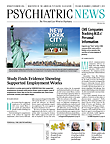A new study adds to the growing body of research data suggesting that oxytocin treatment can improve social communication in individuals with autism and has identified brain activity that appears to underlie such social communication improvement.
The senior researcher was Hidenori Yamasue, M.D., Ph.D., a psychiatrist affiliated with Japan’s University of Tokyo School of Medicine. The results were published online December 18, 2013, in JAMA Psychiatry.
Individuals with autism often have difficulty understanding complex social communications, such as irony and humor, in which verbal information may conflict with nonverbal cues such as facial expressions and eye gazes. The study thus focused on this type of social communication.
Thirty-three high-functioning individuals with autism spectrum disorder (ASD) first received a single dose of intranasal oxytocin or of an intranasal placebo before they were asked to interpret social communication content that contained conflicting verbal and nonverbal information. The subjects were then again asked to interpret social communication content with conflicting verbal and nonverbal information, but under the opposite test condition.
The subjects carried out the social communication tasks more smoothly, and more typically like individuals without autism, after they had received oxytocin than after they had received a placebo. Furthermore, fMRI imaging indicated that the subjects’ improved ability to handle social communication tasks under the influence of oxytocin treatment was due to enhanced activity in two brain regions—the anterior cingulate cortex and the dorsal medial prefrontal cortex—as well as to enhancement of functional connectivity between these two brain regions. Medial prefrontal cortex activity has previously been shown to be diminished in ASD patients.
“These findings elucidate the neural mechanisms underlying oxytocin’s beneficial effects for sociocommunicational deficits in autism spectrum disorder, and they provide, to our knowledge, the initial evidence regarding the neurobiological basis for any useful effect of oxytocin for the core symptoms of autism spectrum disorder,” the researchers said.
“This is an extremely impressive study,” Andrew Gerber, M.D., an assistant professor of psychiatry at Columbia University and a child and adolescent psychiatrist, told Psychiatric News. “Though previous studies have hinted at the efficacy of intranasal oxytocin in improving the core symptoms of autism, this is the first well-designed, randomized, controlled trial to show its effect on conflicting verbal and nonverbal social information.”
Also, he noted, “the demonstration of the efficacy of oxytocin in treating core symptoms of autism spectrum disorder and its neural correlates opens the doors to the development of pharmacological agents that make use of this pathway and holds real promise for the millions of affected individuals and their families.”
Oxytocin treatment likewise seems to benefit social cognition in individuals with schizophrenia, Stephen Marder, M.D., a psychiatrist at UCLA’s Semel Institute for Neuroscience, reported at the 2013 International Congress on Schizophrenia Research (Psychiatric News, May 17, 2013).
The study was funded by Grants-in-Aid for Scientific Research, the Global Center of Excellence Program, the Japan Society for the Promotion of Science, and the Japan Society for the Promotion of Science Research Foundation for Young Scientists. ■
